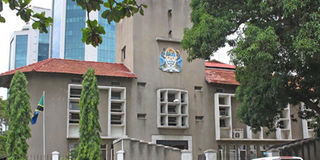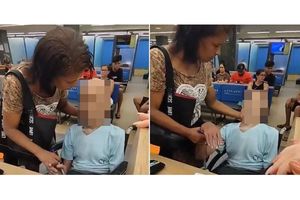Struggle for independent electoral body ‘continues’

Dar es Salaam. The push for a free and independent electoral body is now back to square one following the Court of Appeal ruling that reinstated district executive directors (DEDs) as election returning officers, revoking a ruling by the High Court which prohibited them from representing the National Electoral Commission (NEC).
This is according to those who are seeking to challenge the DEDs’ involvement in the electoral process and who have now decided to turn to the African Court on Human and People’s Rights (ACHPR).
The High Court of Tanzania nullified Article 7 and 7(A) of the National Elections Act (Cap 343 of 2010) which allowed directors to execute duties on behalf of NEC.
The case filed in 2018 by Bob Chacha Wangwe challenged constitutionality of the articles. But, yesterday, Mr Wangwe told The Citizen that a team of lawyers representing him in the case were analysing judgement by the Court of Appeal before filing a case at the ACHPR.
“Fortunately, we were provided with a copy of judgement immediately after being read. Therefore, we are now analysing to establish the case before the next course of action,” he said in a telephone interview without specifying date of filing the case. However, Mr Wangwe said they were doing all their best to ensure the issued decisions would positively impact the 2020 General Election.
“It is a very open case that we are confident to win. The most important thing is how the judgement will be enforced,” he stressed.
June 14, 2013, the ACHPR declared victory to stakeholders led by Rev Christopher Mtikila over independent candidates in Tanzania elections.
The Media Council of Tanzania (MCT) and other stakeholders emerged victorious on March 28, this year when the East African Court of Justice (EACJ) ruled out that several sections of the Media Services Act, Number 120 of 2016 violated the freedom of expression.
According to the judgement, the sections were contrary to Articles 6(d) and 7(2) of the 1999 Treaty that established the East African Community.
However, none of the two judgement have been implemented or honoured by the government todate, but Mr Wangwe maintained his confidence with the court.
“Someone was supposed to apply for execution of the judgement after six months of the government’s failure to honour the ACHPR judgement on independent candidate. The move would take the government accountable,” he said, adding.
“Sanctions could be imposed to the government to press for implementation of the judgement. My confidence with court is high that’s why I’m taking the matter there to prove to the world that the ACHPR judgements are honoured by AU member states.”
But, a political science lecturer at the University of Dar es Salaam (UDSM), Prof Bakari Mohamed said the decision means struggles for the formation of independent electoral body was still going on through the regional and continental judicial organs.
“It is the right step after domestic judicial organs have failure to dispense justice on the matter though governments are not fully obliged to implement the judgements,” said the professor blaming Tanzania judges for interpretation of the laws he termed as mechanical.
Basically, Mr Wangwe challenged section 21 (1), 21 (2) and 26 (1) of the National Elections Act as they contradicted the country’s Constitution. He argued that the directors are appointed by the President who doubles as the chairman of a political party.
However, the government filed an appeal against the judgment on July 30, 2019 submitting 11 arguments before a team of five judges including Judge Dr Atuganile Ngwala who chaired the team.
Other judges are Judge Augustine Mwarija Judge Stella Mugasha, Judge Richard Mziray, Judge Rehema Mkuye and Judge Jacobs Mwambegele.
While the government team was led by the Solicitor General, Dr Clement Mashamba, a team of defence lawyers was headed by advocate Fatma Karume.




